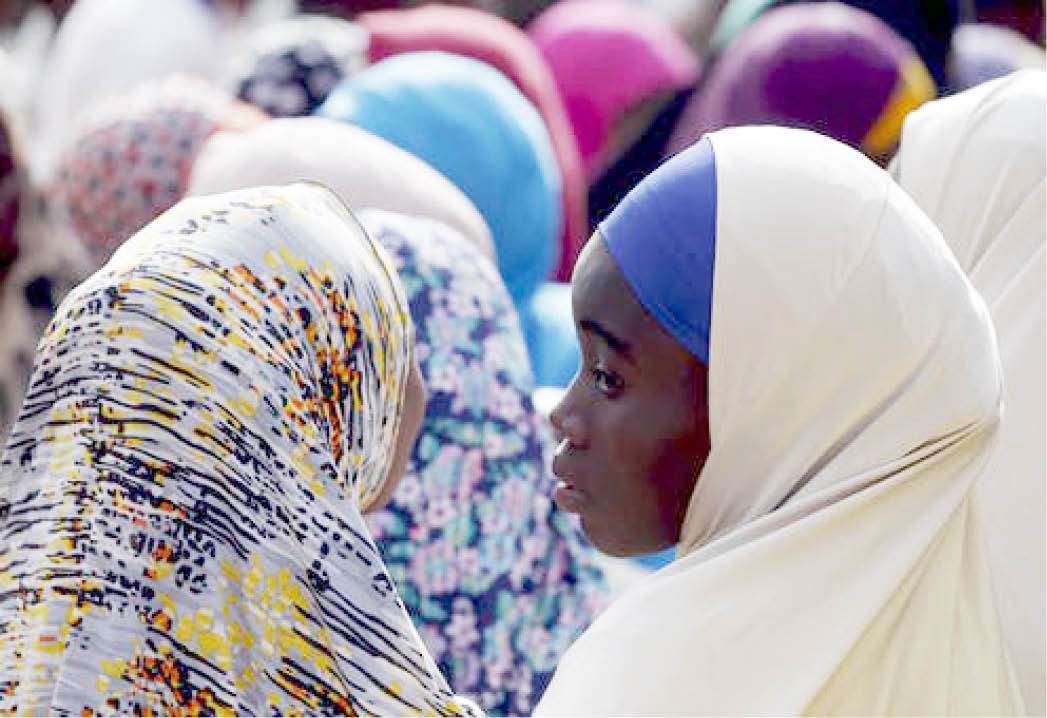In Kano, women who have recovered from COVID-19 are reporting irregularities in their menstrual circles and they believe it is due to the virus. Now they are afraid this might affect their reproductive health, as our correspondent reports.
Zahra Baba (not real name), 24, is a cashier at a bank. She contracted the novel coronavirus in early July.
At first, her symptoms were mild and manageable. She recalled having a fever, feeling a little fatigue and what felt like the flu. She started a flu treatment, thinking she had caught a cold, but when the cough got worse and the chest pain followed, she feared she had caught something worse.
A household name the world over
COVID-19 has been a household name in the country (and the world) for the better part of 2020, and for all the wrong reasons.
The first case of the virus in Nigeria was diagnosed in late February of 2020, as recorded by the Nigerian Centre for Disease Control (NCDC).
Patient Zero was an Italian returning to his Nigerian job in Lagos, from Milan, Italy. In a matter of days, the virus spread and the country, like the rest of the world, has not remained the same since.
Zahra’s ordeal
After struggling with the symptoms for a week, Zahra Baba contacted the NCDC and was admitted into an isolation centre.
“It was very bad. I felt so weak; I thought I was going to die. It was hard to walk to the bathroom, I kept running out of breath,” she told Daily Trust. “I felt like I was going to cough my throat out, and my temperature was very high, I felt hot everywhere. I also could not feel the taste of anything.”
For three weeks, she battled the disease and then tested negative. She was discharged and returned home, hoping to put the ordeal behind her. But things did not go so smoothly.
At first, she started to forget things easily. She would forget she had food on fire, or meetings to attend or calls to make. She still found it difficult to walk a distance or climb a flight of stairs without running out of breath. But the biggest worry Zahra had, came when her menstrual cycle delayed past August and well into September. She started to panic and went to see a gynaecologist.
“My doctor told me that other women have had this complain too. She gave me some pills to take, and I had my period about twenty days later. The doctor said that my period will return to normal after that, but it did not,” she said.

Delayed menstrual cycle
Zahra’s next cycle was also delayed, and this time, she experienced very light spotting compared to the heavy flow she was used to.
“I did not even know I was on, I just saw a small drop of blood on my pant when I went to pee,” she said.
She had to return to her doctor. This time, she was placed on hormonal pills, and under observation for three months.
Zahra is not alone. Saratu Abdullahi*, 28, mother of three, tested positive on the 16th of July. She did not test negative until six weeks later.
“In September when I was supposed to be seeing my period, it delayed for like two weeks. And then I was spotting throughout those two weeks. In October, it did not come at all,” she said.
Laila Bello*, 27, also had a similar experience. She tested positive in mid May and like Saratu, did not test negative until six weeks later.
“I spotted throughout July, then nothing at all in August. I am now on hormonal pills and taking vitamins. I really hope it has no negative effects on my ability to conceive,” she said.
There’s a lot we still don’t know!
Speaking with Daily Trust, Iman Warshu, a doctor who has been working in the COVID-19 Isolation Centre at the Aminu Kano Teaching Hospital, Kano, said, “There is still so much we do not know about this virus, we still have a lot of research to do. What I can say is that anything that affects a woman’s immunity, and affects the temperature of the body, can affect her menstrual cycle.”
Dr. Warshu advised that we continue to stay safe, maintain social distance and adhere to all preventive measures accessible to us.
When asked, Zahra said her only focus going forward is to get better and return to her normal cycles as she wants to get married and have children someday.
“I really hope this does not affect my chances of having beautiful babies”, she said, the fear visible on her face.
She also joined a WhatsApp group of COVID-19 survivors. She said the group has helped her feel less alone.
“There are many women on the group; some now have high blood pressure and they didn’t have that before COVID-19. I also know someone who has problems with her kidneys now; they say one of her kidneys is failing. Many of us have problems with our periods, either it comes for too long or it refuses to come, or one problem or the other,” she said.
Long term health problems
In a publication by the World Health Organisation, patients who have suffered COVID-19 symptoms for four weeks or more are said to be susceptible to other long-term health problems.
Health problems they may suffer will include; damage to the heart muscles and lung tissues, kidney injuries, high blood pressure, damage to the brain and nervous system, mental health problems like depression and anxiety.
“Just stay safe and make sure you do not get the virus” Zahra said, “because it is not funny at all”.
* Names of the women in this report have been changed for privacy reasons

 Join Daily Trust WhatsApp Community For Quick Access To News and Happenings Around You.
Join Daily Trust WhatsApp Community For Quick Access To News and Happenings Around You.



